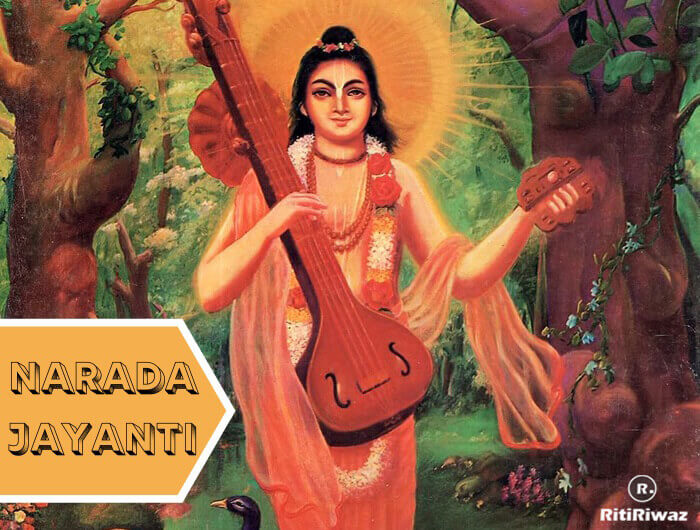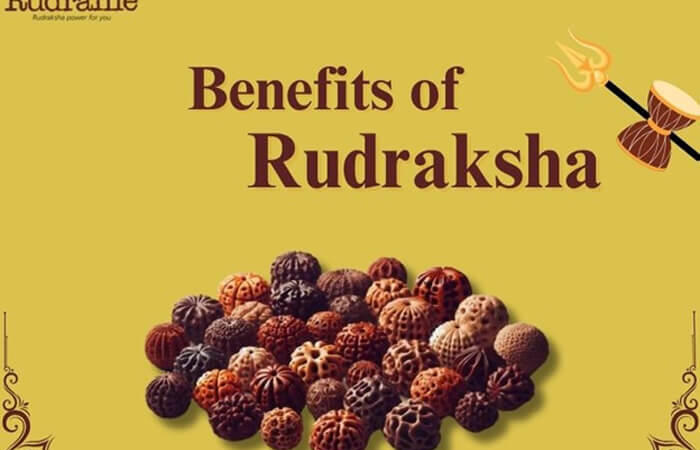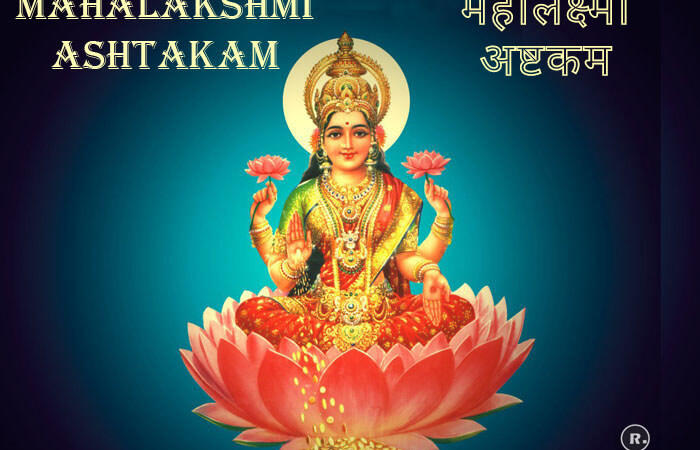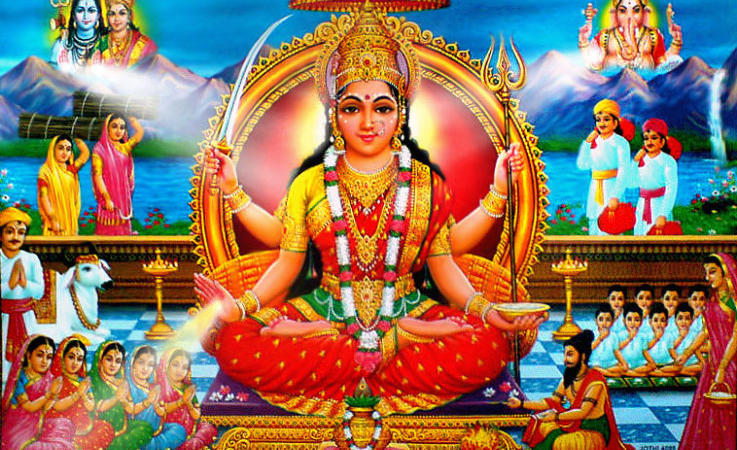Narada Jayanti – 13th May

Narada Jayanti is the birth anniversary of Narada Muni (the messenger of God) which is observed in Krishna Paksha of the Vaisakh month. Devrishi Narada is considered to be the divine messenger and informant among Gods. Narada Muni is considered to be the founder and pioneer of communication.
Narada is a Vedic sage who is a traveling musician and a storyteller. He carries news from one place to another. He appears in the Mahabharata and the Ramayana and many Puranas. In 2025 Narada Jayanti will be celebrated on 13th May (Tuesday).
Who is Narada?
Narada literally means one, who spreads the name of God, as in Sanskrit, naraa is equivalent to Narayana which means wisdom and daa stands for daan or giver. Narada is a sage who could easily transverse through the 3 lokas, of Akash that is Heaven, Prithwi that is Earth, and Patal that is Hell. Narada was one of the greatest devotees of Lord Vishnu. He uttered the holy word “Narayana” (Which is an alias of Lord Vishnu) too frequently during conversation. His penance, devotion, and meditation were so strong that nothing perturbed his mind. Narada is described as both wise and mischievous in some humorous tales.
In the creation of this universe according to Pauranika literature, Shri Narada Muni is the younger brother of the Four Kumaras and son of Brahma. He also rejected his father’s orders of increasing the population and chose devotion to the Lord. He was thus present before all of the demigods, along with his elder brothers. He was blessed with the ability to travel to any part of creation according to tradition and he took initiation from his older brothers and their discussions. As guru and disciple are recorded in the Upanishads with a famous conversation in the Chandogya Upanishad; also with their discourses in the Shri Narada Purana and the Pashcaratra literature. He is found in most of the religious scriptures always passing on the knowledge of an event or teaching the path of Bhakti to all. He was the inspiration for the writing of the greatest Purana – the Bhagavata Purana.
Why Narada couldn’t stay in one place
Narad Muni was the son of Lord Brahma and Mata Gayatri. His sibling includes four Kumars, Daksha and Manu. One day Prajapati Daksha was distributing works among different people and found that his sons wanted to become celibates. When Daksha inquired, he found that Narad Muni asked them to do so. His sons wanted to get peace and Moksha (freedom from the cycle of life and death), so Narad suggested they become celibates. Daksha wanted his sons to help him in the creation and administration of the world but they all went to another path.
Daksha thought that because of this Narad, his sons will always wander and won’t find peace and comfort. So he cursed Devrishi Narad that like his sons, he will also keep roaming in the universe without settling for a long period. Although no one in Patal Loka, Mrityu Loka, Swarga Loka, or Brahma Loka could prevent him from coming he might not be welcomed. He will keep on roaming forever saying, “Narayana Narayana”.
Narad Muni accepted this curse as a boon for him because this way he will keep chanting the name of his adorable Shri Hari Narayana. Because of this curse, Narad muni couldn’t stay for a long time in a single place. He acts as a messenger of Narayana and keeps gathering the latest information from all over the universe.
Celebration of Narada Jayanti
The temples of Sage Narada are located in Chigateri and Korva in Karnataka. Narada Jayanti is celebrated in the Hindu month of Visakha as the birth anniversary of Sage Narada. The devotees observe fasts on this day and recite the Puranas. Devotees visit temples to offer prayers and give Daan-Dakshina.
A feast is organized in temples and there is also a trend of bathing in holy rivers. Feeding of Brahmans is conducted. Shree Hari Vishnu is also worshiped especially on Narada Jayanti. Tulsi party is also included in the puja, as Sage Narada was a great devotee of Lord Vishnu. The puja should be done with pure heart and mind. Offer Tulsi, flowers, incense stick, and lamp followed by aarti of Lord Vishnu.






